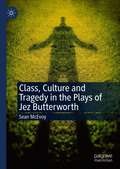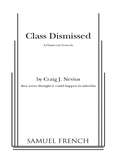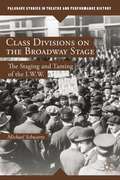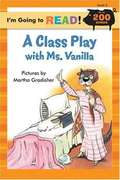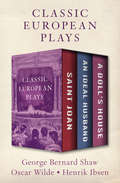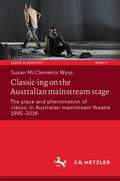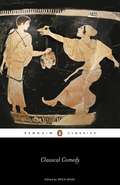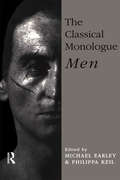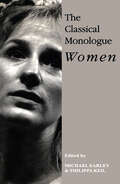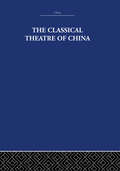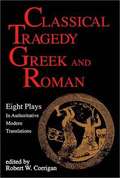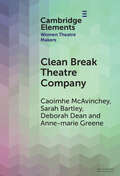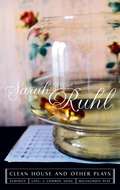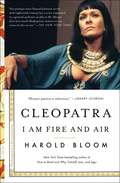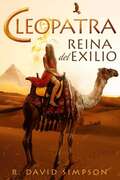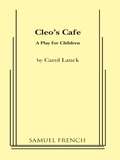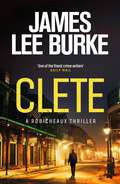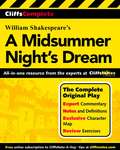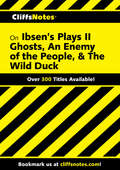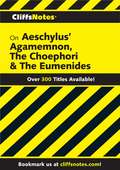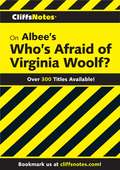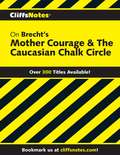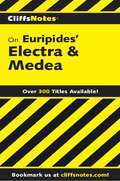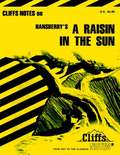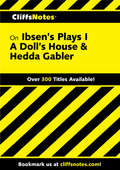- Table View
- List View
Class, Culture and Tragedy in the Plays of Jez Butterworth
by Sean McEvoyJez Butterworth is undoubtedly one of the most popular and commercially successful playwrights to have emerged in Britain in the early twenty-first century. This book, only the second so far to have been written on him, argues that the power of his most acclaimed work comes from a reinvigoration of traditional forms of tragedy expressed in a theatricalized working-class language. Butterworth’s most developed tragedies invoke myth and legend as a figurative resistance to the flat and crushing instrumentalism of contemporary British political and economic culture. In doing so they summon older, resonant narratives which are both popular and high-cultural in order to address present cultural crises in a language and in a form which possess wide appeal. Tracing the development of Butterworth’s work chronologically from Mojo (1995) to The Ferryman (2017), each chapter offers detailed critical readings of a single play, exploring how myth and legend become significant in a variety of ways to Butterworth’s presentation of cultural and personal crisis.
Class Dismissed
by Craig J. NeviusA 19 year old high school graduate wrote this wonderful play about an English teacher who is frustrated with his students' lackadaisical approach to their education and takes severe measures: he holds his toughest students hostage in his classroom. They are an egocentric jock, the obnoxious class clown, the sensitive male and female intellectuals and the flippant prom queen. The lesson they learn is not about English but about life.
Class Divisions on the Broadway Stage
by Michael SchwartzExamining twenty-five years of theatre history, this book covers the major plays that feature representations of the Industrial Workers of the World. American class movement and class divisions have long been reflected on the Broadway stage and here Michael Schwartz presents a fresh look at the conflict between labor and capital.
A Class Play With Ms. Vanilla
by Martha Gradisher Margot LinnMs. Vanilla's class is happy today; they're about to put on a play. Everyone is ready. The whole school is there. The curtain goes up, so on with the show. It's the story of Red Riding Hood, and every young actor is really so good. But there's something familiar about Big Bad Wolf. Guess who it is? It's Ms. Vanilla!
Classic European Plays: Saint Joan, An Ideal Husband, and A Doll's House
by George Bernard Shaw Oscar Wilde Henrik IbsenThese three timeless plays showcase the sparkling wit and provocative intellect of some of modern drama&’s greatest playwrights.Saint Joan by George Bernard Shaw: This complex drama depicts the life of Joan of Arc—from her childhood vision calling her to lead the French army against the English in the Hundred Years War through her eventual capture, trial, and burning at the stake. An epilogue depicts a retrial that clears Joan of heresy, declaring her a Christian martyr.An Ideal Husband by Oscar Wilde: In this timeless drawing room comedy, a blackmail scheme forces a married couple to reexamine their moral standards—providing a wry commentary on the hypocrisy of politicians. Carried along by nonstop witty repartee, this is satirical theater at its finest.A Doll&’s House by Henrik Ibsen: This quintessential work of dramatic realism depicts one woman&’s struggle against patriarchal society. The central character&’s rejection of a smothering marriage shocked theatergoers of the late nineteenth century while the play&’s pioneering style set the stage for twentieth century domestic drama.
Classic-ing on the Australian mainstream stage: The place and phenomenon of classic in Australian mainstream theatre 1995-2016 (Szene & Horizont. Theaterwissenschaftliche Studien #11)
by Susan McClements WyssThis book evaluates classic drama as an active creation. To classic is a complex theatrical practice that animates program choice, casting and staging, audience reception and critical response. Analysis of six distinct examples of pre-determined and self-nominated classic productions on the Australian mainstage is informed by postcolonial theory, specifically the settler dilemma of Indigenous cultural authority. What happens to the political edge of postcolonial aspiration within the status of classic? Close consideration of staging and casting, theatre historical perspectives, and interviews with key artists, expands the concept of classic as a dimension of theatrical and not only of dramatic reception. This book responds to a polarised debate that focused on auteur directors and the relative value of new vs classic plays. Rather than adopting a position, the study undertakes a deeper assessment of the phenomenon and place of the dramatic classic in Australian mainstream theatre.
Classical Comedy: The Comedies Of Aristophanes (Aris And Phillips Classical Texts)
by Aristophanes Menander Plautus TerenceFrom the fifth to the second century BC, innovative comedy drama flourished in Greece and Rome. This collection brings together the greatest works of Classical comedy, with two early Greek plays: Aristophanes' bold, imaginative Birds, and Menander's The Girl from Samos, which explores popular contemporary themes of mistaken identity and sexual misbehaviour; and two later Roman comic plays: Plautus' The Brothers Menaechmus - the original comedy of errors - and Terence's bawdy yet sophisticated double love-plot, The Eunuch. Together, these four plays demonstrate the development of Classical comedy, celebrating its richness, variety and extraordinary legacy to modern drama.
The Classical Monologue (M): Men
by Michael Earley Philippa KeilThe Classical Monologue in two volumes, one for men and one for women, is a fresh selection of the best speeches from the repertoire of the classical theatre, from the Greeks to the beginning of the 20th century. These great dramatic monologues--from all periods and styles, all varied in tone and genre--make an indispensable actor's companion for auditioning, rehearsing and performing. Each monologue is accompanied by textual notes explaining any unusual vocabulary or syntax, and by commentary in which the editors offer interpretative points and practical advice in preparing the speech for performance. Both beginners and experienced actors will find The Classical Monologue a treasury of theatrical riches waiting to be released on stage.
The Classical Monologue (W): Women
by Michael Earley Philippa KeilFirst Published in 1993. Routledge is an imprint of Taylor & Francis, an informa company.
The Classical Theatre of China
by A.C. ScottFirst published in 1957. Besides tracing the history and development of the Peking Theatre, this volume explains acting techniques, stage costume and symbolism, musical forms and the various types of plays.
Classical Tragedy Greek and Roman: 8 Plays in Authoritative Modern Translations Accompanied by Critical Essays
by Robert W. CorriganA collection of eight plays along with accompanying critical essays. Includes: "The Oresteia" Aeschylus; "Prometheus Bound" Aeschylus; "Oedipus the King" Sophocles; "Antigone" Sophocles; "Medea" Euripides; "The Bakkhai" Euripides; "Oedipus" Seneca; "Medea" Seneca.
Clean Break Theatre Company (Elements in Women Theatre Makers)
by Caoimhe McAvinchey Sarah Bartley Deborah Dean Anne-marie GreeneClean Break Theatre Company is a women-only theatre company that grew out of a prisoner-led drama workshop that took place between 1977–1979 in HMP Askham Grange. In addition to its considerable impact on criminalised women and public understandings of the socio-political impact of their experiences, Clean Break has had a significant but under-acknowledged impact on contemporary British theatre. We examine three areas of Clean Break's theatre making history and organisational practices: its origin stories; its education and engagement work; and how the company's performance practices have, across five decades, 'then' and 'now', adapted to directly intervene in carceral society. By highlighting Clean Break's distinct activist theatre making processes and practices, the book makes explicit the genealogical connections of the company's past work and its impacts on contemporary feminist theatre practices.
The Clean House and Other Plays
by Sarah Ruhl"Passionate. Show-stopping. Daringly over-the-top and impressively consistent in its delirious excess. The Clean House shines."--New Haven Advocate"The Clean House is not, by any means, a traditional boy-meets-girl story. In fact disease, death, and dirt are among the subjects it addresses. This comedy is romantic, deeply so, but in the more arcane sense of the word: visionary, tinged with fantasy, extravagant in feeling, maybe a little nuts."--The New York Times"Touching, inventive, invigoratingly compact, and luminously liquid, Eurydice reframes the ancient myth of ill-fated love to focus not on the bereaved musician but on his dead bride--and on her struggle with love beyond the grave."--San Francisco ChronicleThis volume is the first publication of Sarah Ruhl, "a playwright with a unique comic voice, perspective, and sense of theater" (Variety), who is fast leaving her mark on the American stage. In the award-winning Clean House--a play of uncommon romance and uncommon comedy--a maid who hates cleaning dreams about creating the perfect joke, while a doctor who treats cancer leaves his heart inside one of his patients. This volume also includes Eurydice, Ruhl's reinvention of the tragic Greek tale of love and loss, together with a third play still to be named.Sarah Ruhl received the prestigious Susan Smith Blackburn Prize in 2004 for her play The Clean House, which has been produced at Yale Repertory Theatre in New Haven, Wilma Theatre in Philadelphia, South Coast Repertory Theatre in Costa Mesa, and Woolly Mammoth Theatre Company in Washington, DC. Her play Eurydice has been produced at Madison Repertory Theatre and Berkeley Repertory Theatre.
Cleopatra: I Am Fire and Air (Shakespeare's Personalities #2)
by Harold BloomFrom Harold Bloom, one of the greatest Shakespeare scholars of our time, comes an intimate, wise, deeply compelling portrait of Cleopatra—one of the Bard’s most riveting and memorable female characters.Cleopatra is one of the most famous women in history—and thanks to Shakespeare, one of the most intriguing personalities in literature. She is lover of Marc Antony, defender of Egypt, and, perhaps most enduringly, a champion of life. Cleopatra is supremely vexing, tragic, and complex. She has fascinated readers and audiences for centuries and has been played by the greatest actresses of their time, from Elizabeth Taylor to Vivien Leigh to Janet Suzman to Judi Dench. Award-winning writer and beloved professor Harold Bloom writes about Cleopatra with wisdom, joy, exuberance, and compassion. He also explores his own personal relationship to the character: Just as we encounter one Anna Karenina or Jay Gatsby when we are in high school and college and another when we are adults, Bloom explains his shifting understanding of Cleopatra over the course of his own lifetime. The book becomes an extraordinarily moving argument for literature as a path to and a measure of our own humanity. Bloom is mesmerizing in the classroom, wrestling with the often tragic choices Shakespeare’s characters make. With Cleopatra, he delivers exhilarating clarity and invites us to look at this character as a flawed human who might be living in our world. The result is an invaluable resource from our greatest literary critic.
Cleopatra, Reina del Exilio (1 #1)
by Robert Simpsoncleopatra, reina del exilio Cleopatra, reina muerte de Egipto, enfrentada a una segura por parte de su marido molesto, se ve obligada a huir de Egipto, reunir un ejército, luego regresa a Egipto para reclamar su trono con la ayuda del líder romano, César. OTCA 1; La escena comienza con tres mujeres griegas ricas, que planean prestar dinero al César. Luego; CLEOPATRA y CÉSAR están a bordo del barco real, esperando que se cargue el barco. Están a punto de zarpar para un viaje de dos meses por el río Nilo a cataratas y de regreso. Mientras esperan que el barco zarpe, Cleopatra le pregunta a César sobre sus conquistas en la Galia e Inglaterra. Mientras responde, recuerda lo que pensaba de los galos y los ingleses y cómo reaccionaban los hombres al llegar a las costas de la costa inglesa. Vemos que le preocupan sus deudas, comida para los hombres y quebrantar las leyes romanas sobre el ataque a la Galia. También ve a Cleopatra como Reina y una oportunidad para expandir sus planes de hacerse cargo del Imperio Romano y también de Egipto a través de Cleopatra. Como César lucha en Europa. Cleopatra tiene sus propios problemas en Egipto. Ella tiene una audiencia con la gente común que está teniendo problemas para pagar impuestos debido a la sequía y al bajo río Nilo que alimenta los campos. Ella otorga a una persona en particular, la libertad de impuestos, anulando el consejo de su asesor. Luego deja la 'sala de audiencia' para ir a sus habitaciones, pero en el camino se encuentra con su hermano de diez años y sus asesores. Incluso a las diez, su hermano es bastante astuto y entiende su papel y exige saber por qué su cara no está en las nuevas monedas, recién emitidas. Ella responde que él no está haciendo todo el trabajo y que todavía disfruta de los juegos infantiles. Se enoja mucho.
Cleo's Cafe
by Carol LauckChildren's playm / 2 m., 4 f. / Interior / Cleo's Cafe fascinates the very young with puppetry and robots while delighting older children and adults with a comical, intelligent, contemporary plot. When Cleo wants to buy and manage the cafe where she works and tries to convince Pierre to be her partner, an excitable chef who flies into tantrums over lost recipes and gives musical French lessons, Pierre reluctantly agrees with one condition-- Cleo must regain the customers lost by the former manager. A puppeteer offers some unusual help and chaos ensues when his robot goes berserk. A zany canary puppet and a bewildered customer add to the hilarity.
Clete (Dave Robicheaux)
by James Lee BurkeIn the latest Robicheaux novel, Clete Purcel - veteran, private investigator, and former New Orleans cop - takes centre stage for the first time. ****Clete Purcel - private investigator, ex-member of the New Orleans Police Department, and war veteran with a hard shell and just a few soft spots - is Dave Robicheaux's longtime friend and partner in detective work. But he has a troubled past.When Clete leaves his car at the local car wash, only to return to find it ransacked by a group of thugs tied to the drug trade from Mexican cartels to Louisiana, it feels personal - his grandniece died of a fentanyl overdose, and his fists curl when he thinks of the dealers who sold it.Just as Clete starts to trail the culprits, Clara Bow hires Clete as a detective to investigate her scheming, slippery ex-husband, and a string of brutal deaths all link back to a heavily tattooed man who seems to lurk around every corner. Clete is experiencing shockingly lifelike hallucinations and questioning Clara's ulterior motives when he and Dave start to hear rumors of a dangerous substance with potentially catastrophic effects. The thugs who destroyed his car might have been pawns in a scheme far darker than they could've imagined.Gripping, violent, yet interlaced with Clete's humor and consistent drive to protect those he loves, Clete brings a fresh perspective to a truly iconic series. ****PRAISE FOR JAMES LEE BURKE, THE AWARD-WINNING KING OF SOUTHERN NOIR: 'James Lee Burke is the heavyweight champ, a great American novelist whose work, taken individually or as a whole, is unsurpassed' Michael Connelly 'A gorgeous prose stylist' Stephen King 'No argument: James Lee Burke is among the finest of all contemporary American novelists' Daily Mail'The greatest crime writer currently at work' Spectator'The reigning champ of nostalgia noir' New York Times'Masterly' Sunday Telegraph
CliffsComplete A Midsummer Night's Dream
by Michael Mcmahon William ShakespeareIn the CliffsComplete guides, the play's complete text and a glossary appear side-by-side with coordinating numbered lines to help you understand unusual words and phrasing. You'll also find all the commentary and resources of a standard CliffsNotes for Literature. <P> CliffsComplete A Midsummer Night's Dream has long been one of Shakespeare's most popular plays. Its magical atmosphere, farcical plot, hilarious play-within-a-play, and general air of celebration have been enjoyed by nearly every generation since it was written. Everything is not what it seems in this play. Stay on top of what's really going on -- and save valuable studying time -- all at once. Enhance your reading of A Midsummer Night's Dream with these additional features: A summary and insightful commentary for each act Bibliography and historical background on the author, William Shakespeare A look at the historical context and structure of the play Discussions on the play's symbols and themes A character map that graphically illustrates the relationships among the characters Review questions, a quiz, discussion topics (essay questions), activity ideas A ResourceCenter full of books, articles, films, and Internet sites Streamline your literature study with all-in-one help from CliffsComplete guides!
CliffsNotes Ibsen's Plays II: Ghosts, An Enemy of The People, & The Wild Duck
by Marianne SturmanThis CliffsNotes guide includes everything you’ve come to expect from the trusted experts at CliffsNotes, including analysis of the most widely read literary works.
CliffsNotes on Aeschylus' Agamemnon, The Choephori & The Eumenides
by Robert J MilchThis CliffsNotes guide includes everything you've come to expect from the trusted experts at CliffsNotes, including analysis of the most widely read literary works.
CliffsNotes on Albee's Who's Afraid of Virginia Woolf?
by James L. RobertsThis CliffsNotes guide includes everything you've come to expect from the trusted experts at CliffsNotes, including analysis of the most widely read literary works.
CliffsNotes on Brecht's Mother Courage & The Caucasian Chalk Circle
by Denis M. CalandraCliffsNotes on Bertolt Brecht's plays Mother Courage and The Caucasian Chalk Circle.
CliffsNotes on Euripides' Electra & Medea
by Robert J MilchThis CliffsNotes guide includes everything you've come to expect from the trusted experts at CliffsNotes, including analysis of the most widely read literary works.
CliffsNotes on Hansberry's A Raisin in the Sun
by Rosetta JamesThe original CliffsNotes study guides offer expert commentary on major themes, plots, characters, literary devices, and historical background. The latest generation of titles in this series also feature glossaries and visual elements that complement the classic, familiar format.A Raisin in the Sun debuted in the spring of 1959 and has since been translated into more than 30 languages. It is the story of a poor black family struggling to become part of the middle class. Family hardships test the faith of all involved and the result is unexpected and filled with heartbreak.CliffsNotes on A Raisin in the Sun helps you explore this play by providing you with summaries and commentaries, chapter by chapter. You’ll also gain insight into the author Lorraine Vivian Hansberry. Other features that help you study includeA list of characters and their descriptionsA genealogy chart to illustrate the relationships between the charactersGlossaries to help you fully understand the novelCritical essays on thematic structure, language and style, and moreSuggested essay topics and related research projects for more studyClassic literature or modern-day treasure—you'll understand it all with expert information and insight from CliffsNotes study guides.
CliffsNotes on Ibsen's Plays I: A Doll's House & Hedda Gabler
by Marianne SturmanThe original CliffsNotes study guides offer a look into critical elements and ideas within classic works of literature.CliffsNotes on A Doll's House & Hedda Gabler takes you into Henrick Ibsen's dramatic plays, controversial theater productions that inflamed audience reactions in the nineteenth century.A Doll's House follows the story of a housewife who emerges from the confinement of her married life to confront the conditions of the outside world. Typical of Ibsen's dramas, Hedda Gabler portrays a depraved world in which women in particular submit to unsatisfying socially imposed roles. Summaries and expert commentaries cover each act within both plays; other features that help you figure out these important works includeLife and background of the playwrightSummary of Ibsen's most famous playsAnalysis of the plays' structure, themes, and charactersA complete list of Ibsen's dramaSample exam questions and essay topicsClassic literature or modern-day treasure — you'll understand it all with expert information and insight from CliffsNotes study guides.
